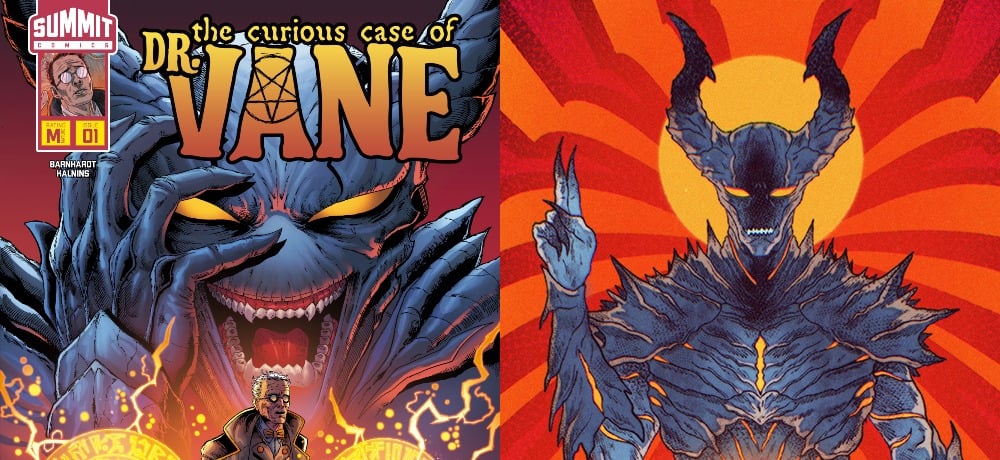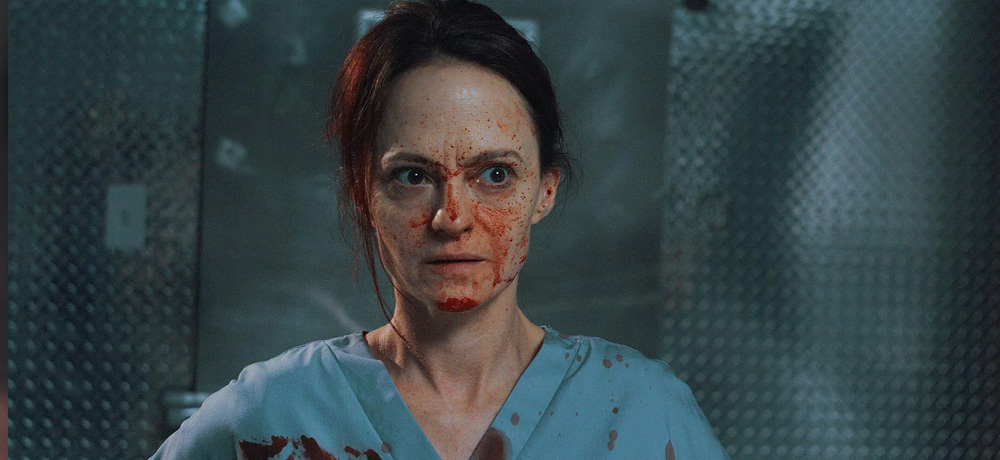






Of the many wonderful things found in writer/director Brea Grant’s 12 Hour Shift last year, chief among them was the return of star Angela Bettis to genre movies. Once a prolific presence in indie horror—thanks in large part to her frequent collaborations with writer/director Lucky McKee—the Texas-born Bettis had stepped away from horror for several years following her turn in McKee’s The Woman and a brief role on Tom Holland’s anthology Twisted Tales. She continued to act, but was sorely missed in the genre. Thanks to Grant and 12 Hour Shift, Bettis is back.
It’s the aforementioned working relationship with Lucky McKee for which most horror fans probably know Bettis best. A working actor on television, film (including a memorable role in 1999’s Girl, Interrupted), and even Broadway for several years before she was cast in May in 2002, it was her role as the title character in McKee’s feature that really introduced her to horror fans. May, a socially awkward and damaged young woman who eventually turns homicidal, remains one of Bettis’ best roles; the performance virtually untouched in all of horror. May is beautifully tragic, sad, and alone, looking for love in what she believes to be all the right places. That she’s unable to find it is what makes May so heartbreaking. She’s just not ready for the world. Maybe the world’s not ready for her.
Bettis would reunite with McKee several more times, first as the very funny lead of his comically demented love story “Sick Girl,” his entry into the Showtime anthology series Masters of Horror, and then switching places with him—putting him in front of the camera while she stepped behind it as director—in 2006’s Roman, a kind of gender-reversed take on May. It was her role as an abused wife in 2011’s The Woman, conceived by McKee and the late, great Jack Ketchum, that marked her final collaboration with the filmmaker to date. Intensely dark, violent, and at times difficult to watch, The Woman is arguably the most challenging and provocative film the pair made together. It’s also brilliant and one of the best horror movies of the 2010s.
Even beyond her collaborations with McKee, Bettis remains a well-deserved icon of indie horror. There are a lot of things wrong with the 2002 made-for-TV adaptation of Stephen King’s Carrie (originally developed as a pilot intended to go to series), but the casting of Bettis in the title role isn’t one of them. She is, in fact, the very thing that makes the movie worth watching in the first place. Tobe Hooper’s 2005 remake of Toolbox Murders may be the last great movie from my favorite director, who had the good sense to cast Bettis in the lead as Nell, the woman terrorized by a maniac living in the walls of her apartment building. Believe it or not, it’s one of Bettis’ most “normal” roles, proof that she was capable of playing much more strait-laced and traditional parts within the genre, had that been what she wanted to do. That she’s more adventurous and colorful in her choices is to the benefit of all us horror fans.
Which brings us back to 12 Hour Shift. Bettis is once again tasked with playing one of her more “normal” characters—if you consider a drug-addicted nurse caught up in an organ harvesting scam “normal.” Damaged and flawed as she may be, Bettis’ character is one of the more conventional elements in a film packed with quirk—the black heart at the center of a body that’s rotten. 12 Hour Shift is a good film without Bettis; with her, it’s a great one. Welcome back, Angela Bettis. We missed you.
---------
Go HERE to catch up on all of our Indie Horror Month features!